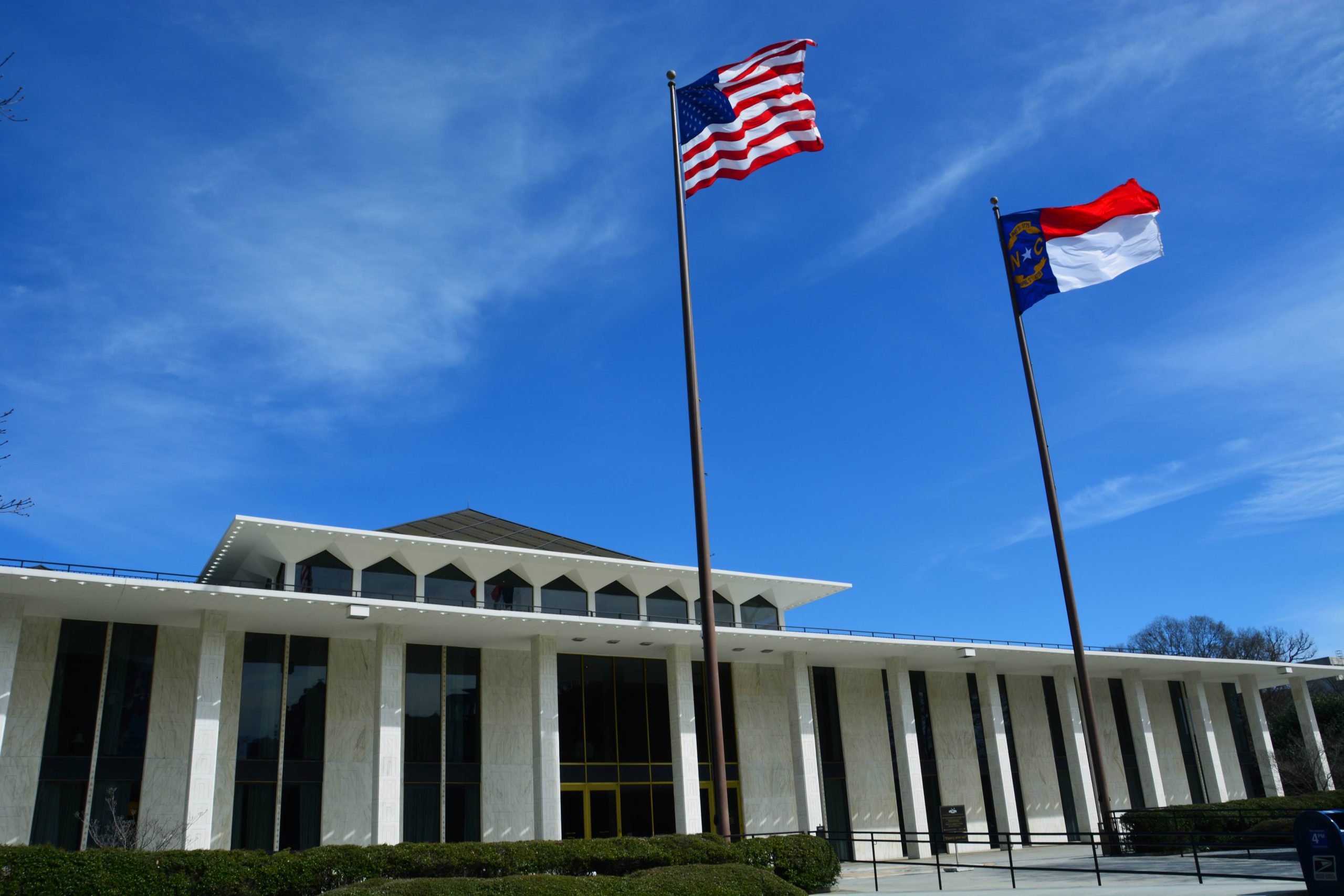North Carolina Republican lawmakers win right to intervene in court and defend states voter-ID law


This article was updated on June 23 at 4:33 p.m.
The Supreme Court on Thursday ruled that two Republican legislators in North Carolina can join a lawsuit to defend the constitutionality of the states voter-identification law. Two lower courts had rejected the legislators request, reasoning that the states Democratic attorney general and the board of elections were already defending the law, but the justices reversed those rulings. In an 8-1 opinion by Justice Neil Gorsuch, the Supreme Court ruled that the Republican legislators have a right to intervene in the lawsuit.
Thursdays decision addressed only the legislators right to join the lawsuit to defend the voter-ID law; it did not address the underlying issue of whether the law violates federal voting-rights protections.
The law at the center of the case requires voters to provide photo identification to cast a ballot and directs county election boards to provide ID cards at no cost to voters. The states legislature passed the law in 2018, and it went into effect over a veto by the states governor, Democrat Roy Cooper. The North Carolina NAACP then went to federal court, where it argued that the law violates both federal voting rights laws and the Constitution. When Philip Berger, the leader of the North Carolina Senate, and Timothy Moore, the leader of the states House of Representatives, asked to intervene in the lawsuit, the district court rebuffed their request, and the U.S. Court of Appeals for the 4th Circuit upheld that decision.
In an 18-page opinion, Gorsuch explained that the first issue before the court was whether the Republican legislators had an interest in the outcome of the dispute that would be practically impaired or impeded without their participation. As a general rule, Gorsuch posited, barring a states authorized representatives from intervening in a federal lawsuit challenging a state law will have such an effect on a states interests. And in this case, Gorsuch continued, other provisions of North Carolina law had specifically given its legislative leaders the power to defend the states interests in cases like this one.
Whats more, Gorsuch added, the 4th Circuit was wrong to presume that the states attorney general, Democrat Josh Stein, had adequately represented the states interests. That inquiry, Gorsuch wrote, is backward, because the Supreme Courts cases have made clear that would-be intervenors generally have to meet only a relatively low bar. But such a presumption, Gorsuch continued, is inappropriate when a duly authorized state agent seeks to intervene to defend a state law. Normally, Gorsuch said, a States chosen representatives should be greeted in federal court with respect, not adverse presumptions.
Gorsuch acknowledged the NAACPs concern that allowing legislative leaders to intervene to defend state laws could in some cases make litigation more complicated and potentially unwieldy. But that case is not this case, Gorsuch stressed. The legislative leaders bring a distinct state interest to the case and indeed, federal courts routinely handle cases involving multiple officials sometimes represented by different attorneys taking different positions.
Justice Sonia Sotomayor was the lone dissenter. She described Thursdays ruling as wrong for two reasons. First, she explained, the majority should not have presumed that a State is inadequately represented in federal court unless whomever state law designates as a States representative is allowed to intervene. Such a presumption, she reasoned, improperly permits state law, as opposed to federal law, to determine whether an existing party adequately represents a particular interest. And second, she continued, the majority was wrong to imply that Steins defense of the constitutionality of the voting law at issue here fell below a minimal standard of adequacy.
Sotomayor expressed concern for the burden the Courts holding will foist on district courts, by allowing each intervenor to file its own brief concerning every motion and creating a right for that intervenor to seek discovery. Even when different state officials have the exact same interest, she cautioned, this multitude of parties will clog federal courts and delay the administration of justice. And when state officials do not have the same interest, she added, federal courts will have to determine which officials will best represent the states interest.
Thursdays decision allowing the Republican legislators to intervene came in the third of three cases this term involving the right of states and state officials to join ongoing litigation. In Cameron v. EMW Womens Center, the justices (also by a vote of 8-1) ruled that Kentuckys Republican attorney general should have been allowed to intervene to defend a state law restricting abortion after the states Democratic health secretary declined to do so. And in Arizona v. City and County of San Francisco, the justices considered a request by conservative states to defend a controversial Trump-era immigration policy known as the public charge rule after the Biden administration refused to do so. The justices ultimately dismissed the case for procedural reasons without deciding it.
This article was originally published at Howe on the Court.
Posted in Merits Cases
Cases: Berger v. North Carolina State Conference of the NAACP
